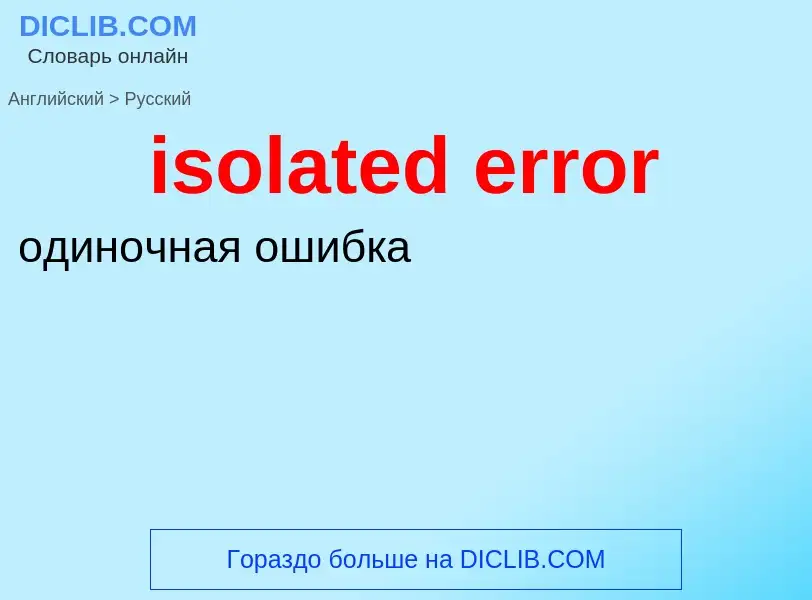Übersetzung und Analyse von Wörtern durch künstliche Intelligenz ChatGPT
Auf dieser Seite erhalten Sie eine detaillierte Analyse eines Wortes oder einer Phrase mithilfe der besten heute verfügbaren Technologie der künstlichen Intelligenz:
- wie das Wort verwendet wird
- Häufigkeit der Nutzung
- es wird häufiger in mündlicher oder schriftlicher Rede verwendet
- Wortübersetzungsoptionen
- Anwendungsbeispiele (mehrere Phrasen mit Übersetzung)
- Etymologie
isolated error - Übersetzung nach russisch
общая лексика
ошибка наблюдения
математика
систематическая ошибка
Definition
Ошибка, оговорка, досадный промах (обычно в устной речи и на письме).
Wikipedia
In real analysis and complex analysis, branches of mathematics, the identity theorem for analytic functions states: given functions f and g analytic on a domain D (open and connected subset of or ), if f = g on some , where has an accumulation point, then f = g on D.
Thus an analytic function is completely determined by its values on a single open neighborhood in D, or even a countable subset of D (provided this contains a converging sequence). This is not true in general for real-differentiable functions, even infinitely real-differentiable functions. In comparison, analytic functions are a much more rigid notion. Informally, one sometimes summarizes the theorem by saying analytic functions are "hard" (as opposed to, say, continuous functions which are "soft").
The underpinning fact from which the theorem is established is the expandability of a holomorphic function into its Taylor series.
The connectedness assumption on the domain D is necessary. For example, if D consists of two disjoint open sets, can be on one open set, and on another, while is on one, and on another.

